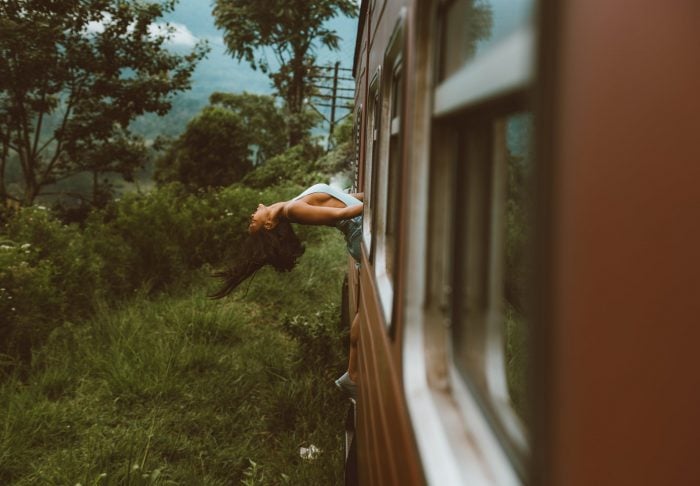In a few weeks, it will be 12 months since life as we know it stopped.
Twelve months of being parted from our loved ones, 12 months with no social interactions, 12 months of watching the news religiously, 12 months of anxiety and fear.
As a lone parent, I have also had 12 months of being with my children 24/7—they have been at home more than at school. I have become head teacher, fitness instructor, friend, counsellor, head chef, chief referee, and the queen of COVID-19 prevention.
The Xbox has become a dictator in our house—damned if you do, damned if you don’t. The earth momma in me wants to restrict all interaction and remove the screen time from my children to protect them from an inactive and zombie-like state. I then consider the fact that this, for them, is the only social interaction they are having with their own peers, the only line into their own worlds—their own escapism—and who am I to rip that from them alongside every single “fun” thing that’s been taken to date?
I am a bubbling cauldron of contradiction.
Do, don’t, should, shouldn’t—who the f*ck knows what’s right…right?
Who could have imagined a world in which we wear masks and gloves to do the grocery shopping, come home and disinfect our tins, actively cross the road when we see people approaching, and wave to our loved ones through windows?
I have gone from desperately wanting to go out, to feeling incredibly agoraphobic about being able to go out, to wishing I could see friends, to avoiding calls because I had absolutely f*ck all to say.
I’ve transitioned from fitness fanatic to couch potato and back again—rinse and repeat. I now check my step count like I used to check my emails. It’s an obsessive compulsion that drives my mood daily.
I have been a “micro-momager” and a “do whatever you want” parent.
Cooking is either a pleasure or a pain in the ass. It’s either super noodle sandwiches or ultra-nutritious, four-course meals with complex recipes. I go from “Why the hell do I have to cook another meal?” to “Let’s all bake cookies!” in 0.6 seconds.
I clean obsessively for one week and then take four weeks to put the washing away. A wax melt and a freshly washed lounge throw have become my new Saturday routine.
I either wash my hair every other day or once a fortnight.
I no longer have a style, it’s sweatpants—period.
When you are living in a pandemic, nothing is a given. What used to be a liberty becomes a law against—what you took for granted becomes a distant dream.
I can only imagine that Covid life is somewhat akin to having multiple personality disorder; your state of mind is constantly adapting to deal with the monotonous and repetitive humdrum of the day-to-day, the looming fear of losing loved ones, and the intense isolation. I find I must manifest into a specific type of person to be able to deal with each of these unique circumstances we find ourselves in—and that person is as interchangeable as The Great British Weather.
I hereby name this “Lockdown Loco”—and I am not okay!
But what happens when this all ends? Will we spring back into our old selves? Will we be able to switch back to our old lives, come out unscathed, and be rearing to go?
What happens to lockdown loco when lockdown is over?
We should be prepared for the fact that the end of lockdown might be as hard for us as the start was.
Just as it took us time to find ways of adjusting to the new normal during lockdown, we should also expect that it will take time to find our way back and to reconnect with our old life.
“New normal” for most of us will mean life as it was, but with some revisions. Soon it may be a new day—but still not quite the day we envisioned.
We have been tested in ways we never imagined, have worked through these challenges, and found new ways to manage—or even thrive.
For many of us, lockdown has challenged our values and what is important to us, how we see our priorities, and who we see as our priorities. It may have put a strain on our relationships, which will take time to heal, or even make us reconsider the choices we have made.
Our lives, values, loyalties, and attitudes we had before Covid might no longer be the ones we want to return to in post lockdown, and there may be opportunities for us to make positive changes in our lives as well as restore old connections.
Here’s what we can all do to help navigate our way back to our old lives, or in fact, welcome in our new lives.
Focus on the present:
We cannot predict the future; we cannot do anything about what has passed. Now is all that we have—in my last blog, I talked about The Power of Now, and that is really where we need to focus our energies: one day at a time. There is not going to be a sudden switch; Covid will not suddenly be switched off—it’s going to be a one-day-at-a-time job, and we need to focus on that day’s news, that day’s workload, and not second-guess or get too far ahead of ourselves.
Keep the lessons we have learnt:
Whilst lockdown has had many disadvantages, it’s also helped us focus on the things in life that are really important. Perhaps making a written account of your priorities now versus then will help you remember, when life re-enters normality, what is really important and what values carried you through. Writing things down is always a good way to remind yourself of things; maybe you kept a journal or diary during the last year—what kept you going, who mattered the most, and why!
Don’t feel pressured to rush into mass social engagement:
Some of you may be raring to go as soon as the bars open with a list of events already in the planning. For some, however, this may be a nerve-racking thought. Having spent so much time alone, suddenly being expected to be the life and soul of the party is not realistic for most. It will take time—you may still have fears for your safety, you may feel overwhelmed, and that is okay. You don’t have to accept every invite or make up for a year’s worth of lost time in the first few weeks. Do what’s most comfortable to you, listen to yourself, and don’t be afraid to stay low-key for as long as you need to.


 Share on bsky
Share on bsky





Read 6 comments and reply